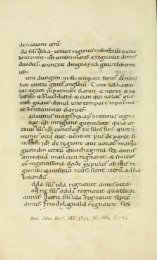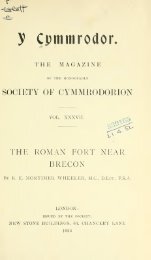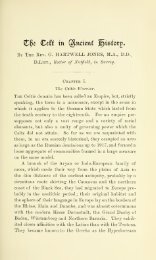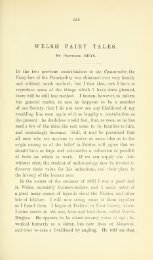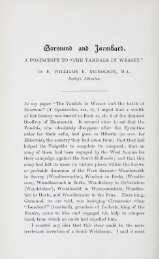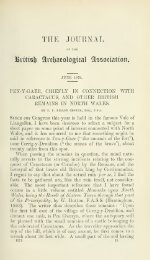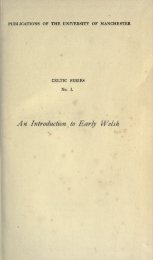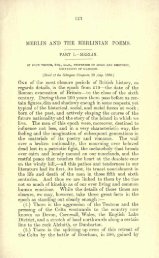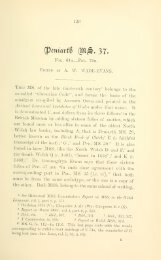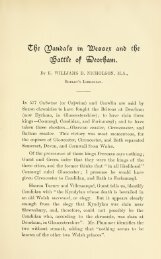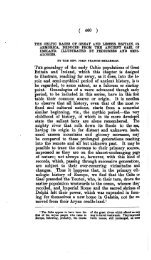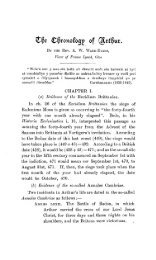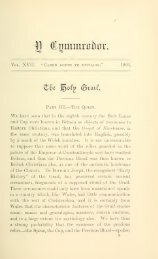Clynnog, Llanrhychwyn, Langienwen - Arthur Pendragon of Wales
Clynnog, Llanrhychwyn, Langienwen - Arthur Pendragon of Wales
Clynnog, Llanrhychwyn, Langienwen - Arthur Pendragon of Wales
Create successful ePaper yourself
Turn your PDF publications into a flip-book with our unique Google optimized e-Paper software.
Tliree Old Fomidations. 73<br />
remains <strong>of</strong> Tre'r ceiri, the famous Iberian settlement on<br />
a spur <strong>of</strong> the Eivals (Yr Eifl). Undoubtedly the final de-<br />
parture <strong>of</strong> Maximus in 387^ created a new situation in<br />
the country generally and especially in this particular<br />
neighbourhood. The Eoman army had sheltered and<br />
protected, and when circumstances compelled the Eoman<br />
evacuation, the countryside and its inhabitants were laid<br />
bare to marauders. These at the time came principally<br />
from Ireland, and for many years formed colonies along<br />
the sea-board. It may be accepted as a fact that for<br />
several centuries, really tiU the Norman period, there were<br />
uumerous and great niovements <strong>of</strong> the population^ as well<br />
as emigration, once the Eoman forces had left these<br />
shores.<br />
Gomiìuj <strong>of</strong> Ghristianity.<br />
The year 387 is a land-mark in many ways. If, as it<br />
is alleged, that Peblig was a son <strong>of</strong> Maximus,^ and that<br />
Peblig was the real founder <strong>of</strong> the church which now bears<br />
his name at Caernarvon, Christianity had already been<br />
planted in this district. We note that both Camden and<br />
Gibson are extremely careful when they refer to any<br />
church, for they invariably use the word dedicated rather<br />
than founded.'* It is now generally assumed by historians<br />
that Christianity was introduced into this country by the<br />
efîort <strong>of</strong> individuals who were members <strong>of</strong> the Eoman<br />
army <strong>of</strong> occupation, and by merchants who traded from<br />
the Continent, rather than, as it was once maintained, by<br />
some <strong>of</strong> the Apostles and their companions<br />
who came on<br />
what might be termed a missionary enterprise. In this<br />
' A<br />
Histonj <strong>of</strong> U'ales (J. E. Lloyd), p. 93.<br />
2 Ibid., p. 94.<br />
' The Lives <strong>of</strong> the British Saint^, iv. p.<br />
1917, (Feiitoii), p. .321.<br />
86. Toars in <strong>Wales</strong><br />
* Britannia by William Canideii, revised by Edmund Gibson<br />
(li vol, 1722), ii, 825.



